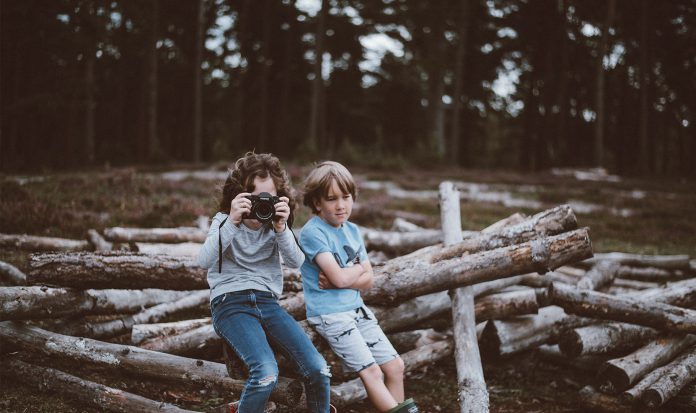By: Katherine Marfal-Teves
Traditional schools, progressive schools, homeschool. Let’s face it, these days parents have a number of options when it comes to schooling their kids. But wait, there’s another thing: Unschooling. Yes, it exists and it can be considered an unorthodox education approach, but nevertheless, here are a few things you need to know about it.
What’s unschooling?
Unschooling, from the term itself, implies getting out of the physical school setup and learning outside the confines of a classroom. Its distinct qualities include an emphasis on tailor-fitting learning for each child and enhancing a child’s inherent curiosity.
Essentially a form of homeschooling, unschooling differs from homeschooling because it doesn’t follow a structured curriculum.
“Unschooling is allowing your children as much freedom to explore the world as you can bear as a parent,” says Patrick Farenga, author, and president of Holt GWS, an organization dedicated to continuing the mission and teachings of the late John Holt, who’s the founder of the unschooling movement.
This educational approach, which first flourished in America in the 1970’s, asserted that children can learn naturally through their inherent curiosity, by way of personal interests, play, household responsibilities, books, and travel, among others.
Unschooling refutes the idea that everyone should learn and excel at the same time. Moreover, it emphasizes that children should be trained to face the real world, filled with life experiences, rather than be stuck in the confines of a classroom, which rewards a student every time he does something excellent.
Foundation of unschooling
Parents don’t have to be experts in education, nor do they need to be an excellent teacher, they just need to be facilitators and proponents of their children’s learning goals.
Sue Patterson, author, homeschooling coach, and unschooling mentor believes that unschooled kids develop social skills better within the confines of their families, as well as the world around them.
“We have such a problem with bullying in schools. Why on earth do we think that’s where (children) need to be to learn social skills?” she claims.
“You don’t learn it sitting in a classroom where you are encouraged not to socialize,” she adds.
Will it work for your kids?
Before choosing a particular learning approach for your child, consider his personality and learning style first. Does your child thrive in an environment where he can meet and socialize with other kids? Does your child learn well, when conformed to a learning curriculum governed by rules and directions? If yes are your answers to these questions, then, unschooling may not be for your child.
On the other hand, children who enjoy exploring and learning things on their own may flourish with the unschooling method.
Surfing couple Kiddo and Amy had begun unschooling their kids when they decided to stay in La Union for good.
“What I like about unschooling the kids is that we get to navigate each day together. Sometimes it’s frustrating, but it’s also so rewarding. We know each other inside out. Cadence, Dylan, and Adam know all my flaws and I know theirs. I don’t have to wait for report cards. Even Amy and I are learning every day. We are all growing together, and I wouldn’t trade that for anything,” Kiddo said.
The couple shared that since unschooling their kids, the sea has become their children’s classroom, “It is where they learn too, their classroom, where they understand the dynamics of the ocean and weather and ask probing questions about anything in the world: birds, crabs, music, cartoons, ninjas, airplanes, anything.”
“I’m sure kids in traditional schools have lots of one-ups over our kids. But I noticed that mine are very comfortable with people of all ages. They respect adults, but they also seem to treat them as equals,” he added.
How to unschool?
If you’re interested in the idea of unschooling your child, here are some ways to get started:
- Know the interests of your child.
- From there, find activities that can nurture those interests.
- From a mere interest, develop it to a talent. If your child is interested in playing the flute, practice with him every day and make beautiful music together.
- Explore endlessly. Don’t limit your child’s explorations. No matter how odd his exploration may be, just let him. Soon, he’ll learn something from it.
- Expose your child to a wide variety of learning stimuli. Expose him to educational reading materials, shows, and other activities where he can learn from.
- Answer his never-ending questions. Don’t be tired of answering all his questions. Present an explanation and encourage him to ask more.
- Play games. Choose games that can stimulate your child’s curiosity, and don’t forget to inject fun as you play.
To unschool or not to unschool your child, the decision and responsibility are solely yours, as a parent.
References: Asian Parent
Katherine Marfal-Teves is a staff writer and mom to a smart and loving 4-year-old boy. She believes that raising a son is both an honor and adventure.
Join our MomCenter Community on our Facebook page and Facebook group for more insights on motherhood and parenting.





